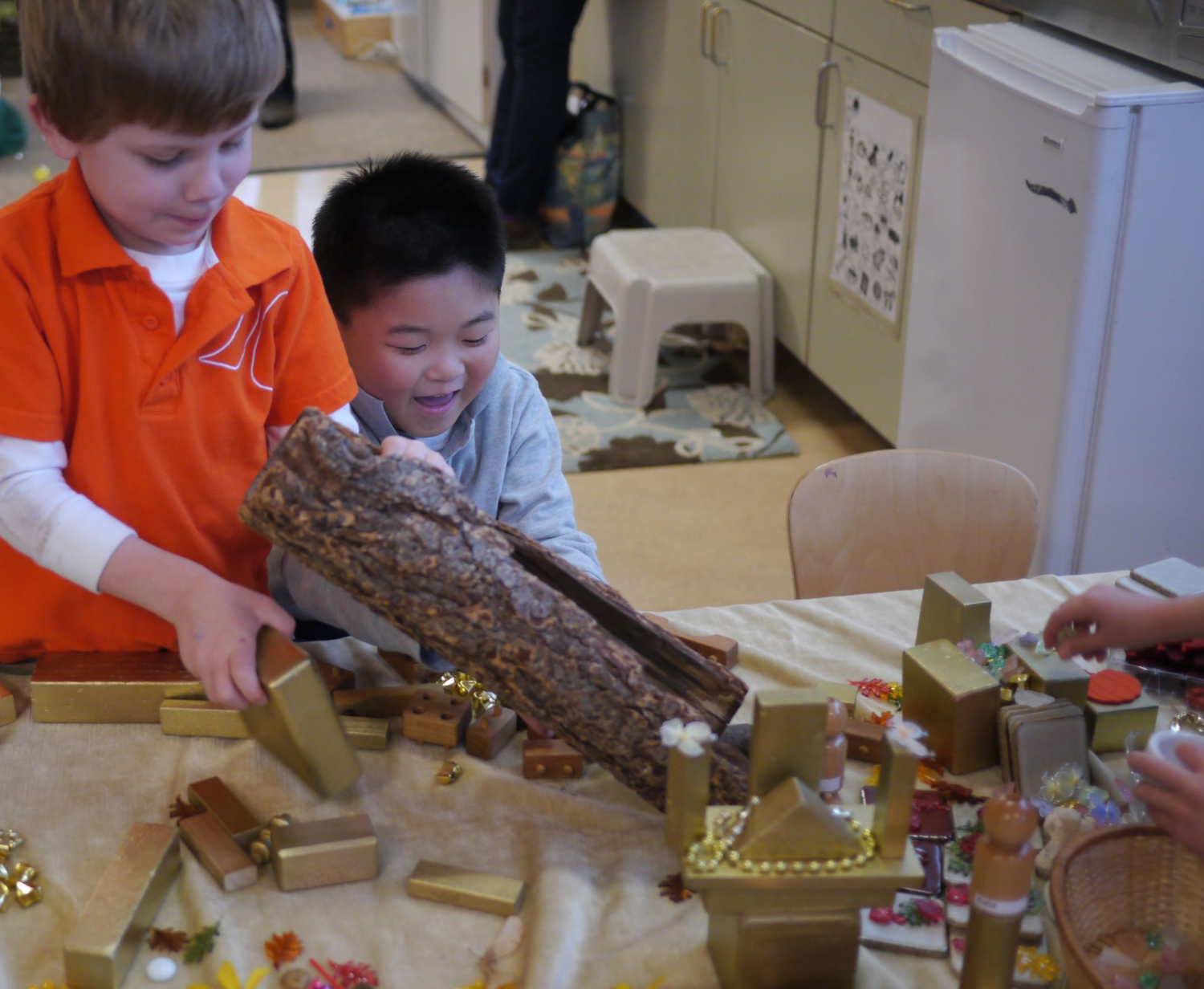Dr. Cosmos, meet Dr. Reggio

Over the last few days, I’ve been reading reflections written by participants who attended Opal School Visitation Days for course credit through Portland State University. So many of them wrote about the role of questions at Opal School. Their reflections brought me, again and again, to an interview I recently heard between Bill Moyers and astrophysicist Neil deGrasse Tyson.
Oh. I hate to sound cliché about this, but my favorite questions are the ones, dare I use the word, yet to be divined, because there’s a discovery yet to take place that will bring that question into the center of the table. I live for those questions. So that means I can’t tell you what they are, because they derive from something yet to be discovered.
BILL MOYERS: In dark matter? Influencing–
NEIL DEGRASSE TYSON: Or for example, if we discover what dark matter is, there’s going to be some question about dark matter that will rise up out of the ground and say, I never even thought to ask that question. In 1920, no one thought to ask, how fast is the universe accelerating? Okay? How fast is the universe expanding? Because no one thought the universe was expanding at all.
You can’t ask questions about the movement of a universe that you don’t even know is in motion. You can’t ask questions about other galaxies if you don’t even know there are other galaxies. So on my deathbed, I will relish in all of the questions that came up that I never thought to ask, because it was the discoveries of the future that enabled them.
In this interchange, I find so many of the themes that visitors to Opal School are struck by – around the importance of questions, children’s ideas, documentation. If we approach a class with the attitude that the reason why they’re together is to develop and pursue questions that have never been asked before because they’ve never been stumbled upon – and because the ideas they generate can be a gift to each other and the world – it fundamentally shifts the nature of the classroom. Documentation allows us to pay attention to what they say and to consider how they’re ideas can lead to next steps. It offers both mirror and projector.
When we say that school is not a preparation for life but is life, this means assuming the responsibility to create a context in which words such as creativity, change, innovation, error, doubt and uncertainty, when used on a daily basis, can truly be developed and become real. This means creating a context in which the teaching-learning relationship is highly evolved; that is, where the solution to certain problems leads to the emergence of new questions and new expectations, new changes. This also means creating a context in which children, from a very young age, discover that there are problems which are not easily resolved, which perhaps cannot have an answer and, for this reason, they are the most wonderful ones because herein lies the “spirit of research.” Even though the children are very young, we should not convey to them the conviction that for every question, there is a right answer. If we did so, perhaps we would appear to be more important in their eyes and they might feel more secure, but they would pay for this security by losing the “pleasure of research,” the pleasure of searching for answers and constructing the answers with the help of others. Children are capable of loving and appreciating us even when we appear to be doubtful or we do not know how to answer, because they appreciate the fact that we are side-byside with them in their search for answers: the child-researcher and the teacher-researcher. Only in this way will children return with full rights among the builders of human culture and the culture of humanity. Only in this way will they sense that their wonder and their discoveries are truly appreciated because they are useful. Only in this way can children and childhood hope to reacquire their human dignity, and no longer be considered “objects of care” or objects of cruelty and abuse, both physical and moral. Life is research.

I love this! Not only have you found my favorite Carlina Rinaldi quote, but you have captured exactly how I approach teaching at Opal. You said, “If we approach a class with the attitude that the reason why they’re together is to develop and pursue questions that have never been asked before because they’ve never been stumbled upon.” I will add that only these children, right now, can ask these particular questions in this particular way because of who they are and the gifts they bring. Then I am reminded of the power of a learning community steeped in the “spirit of research.” Thank you, Matt!